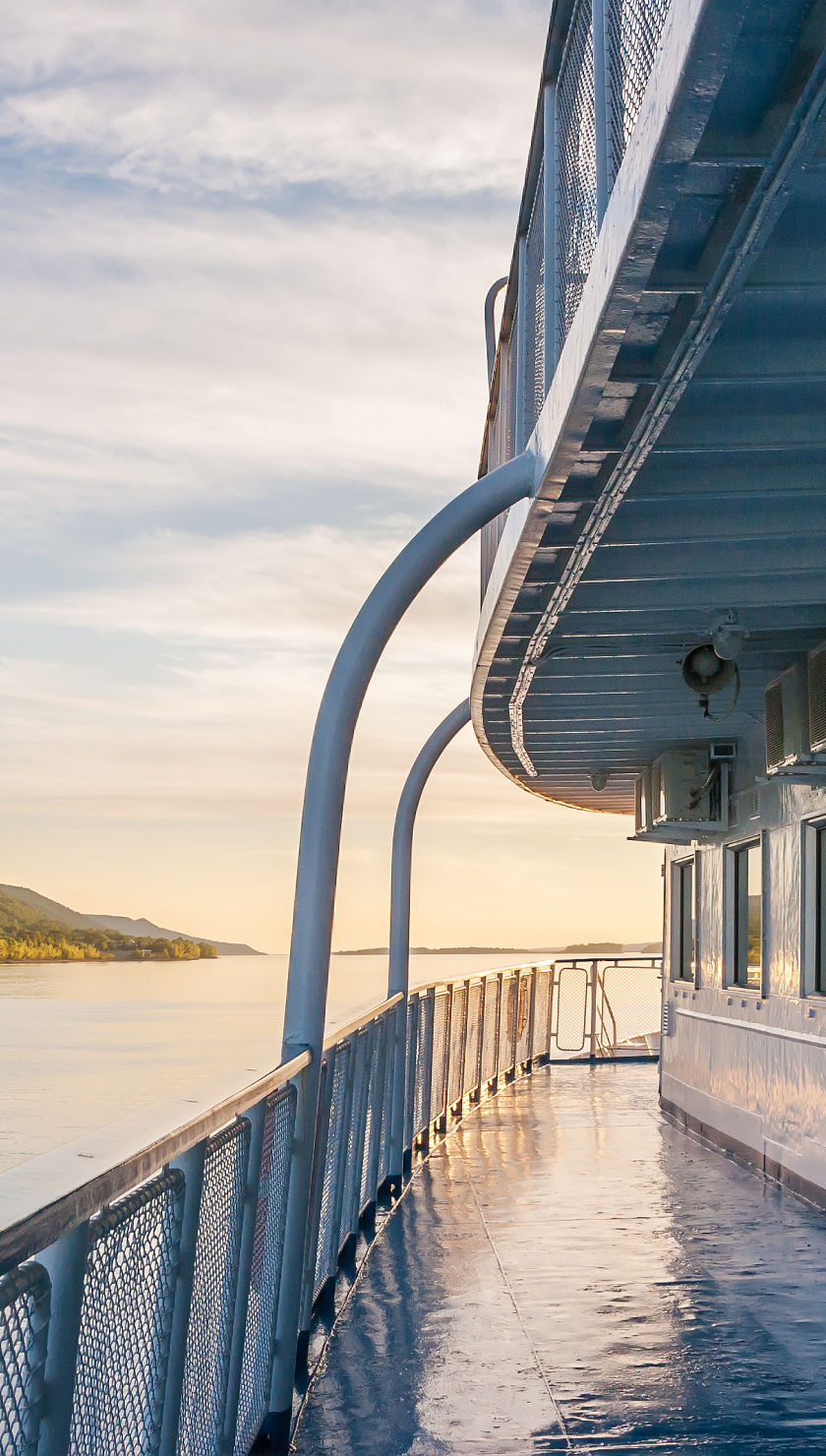Egypt's ancient civilization, nurtured by the life-giving Nile, offers a gateway to one of the world's most extraordinary historical landscapes. A river cruise through this storied region unveils a world of unparalleled archaeological wonders, where majestic temples, royal tombs, and active markets paint a picture of timeless beauty.
Gateway to The Nile: Cairo
Cairo, the capital of Egypt, serves as a dynamic gateway to the Nile. This city, a fascinating blend of ancient history and modern development, offers visitors a glimpse into Egypt's rich heritage and cultural diversity. The iconic Giza Pyramids and the Sphinx, ancient wonders of the world, stand as a testament to the city's past grandeur. Exploring the Khan el-Khalili bazaar, a market filled with exotic spices, local crafts, and traditional goods, provides a sensory immersion into the heart of Egyptian life. Cairo is also a starting point for many Nile cruises that venture south towards Luxor and Aswan.
Highlights: Giza Pyramids, Sphinx, Khan el-Khalili bazaar, Egyptian Museum, Citadel of Saladin
Abu Simbel
Abu Simbel is a breathtaking highlight of Nile river cruises, renowned for its colossal rock-cut temples built by Ramses II. Set against the backdrop of Lake Nasser, the site impresses with its towering statues and intricate carvings that tell stories of ancient power and devotion.
Luxor: A Royal Resting Place
Luxor, often called the "world's greatest open-air museum," presents an awe-inspiring landscape of ancient temples and tombs. This city, once the ancient capital of Thebes, features a wealth of archaeological sites on both the East and West Banks of the Nile. The magnificent Karnak Temple, a vast complex of temples, chapels, and pylons, is a testament to Egypt's religious history. The Luxor Temple, beautifully illuminated at night, offers a serene and enchanting experience. On the West Bank, the Valley of the Kings, where pharaohs were buried, and the Temple of Hatshepsut, a stunning mortuary temple, provide a glimpse into Egypt's royal past.
Highlights: Karnak Temple, Luxor Temple, Valley of the Kings, Temple of Hatshepsut, Colossi of Memnon
The Ancient History of Aswan
Aswan, a serene city nestled along the Nile in southern Egypt, offers a unique blend of natural beauty and ancient history. This city, known for its relaxed atmosphere and Nubian culture, features picturesque river views, granite quarries, and ancient sites. The Philae Temple, dedicated to the goddess Isis, is a stunning temple complex on an island in the Nile. The Aswan High Dam, a modern engineering marvel, offers panoramic views of Lake Nasser. A felucca ride on the Nile provides a peaceful way to experience the river's beauty and visit nearby islands.
Highlights: Philae Temple, Aswan High Dam, Nubian Villages, Unfinished Obelisk
Qena: Where Nile Journeys Meet Ancient Wonders
Qena, situated along the Nile River in Upper Egypt, is a notable destination for river cruises, primarily due to its proximity to the well-preserved Dendera Temple complex. This ancient site, dedicated to the goddess Hathor, features impressive structures adorned with intricate hieroglyphics and towering columns, offering visitors a glimpse into Egypt's rich history. Beyond Dendera, Qena's vibrant local culture and historical significance enhance its appeal as a stopover for travelers exploring the Nile's treasures.
Highlights: Dendera Temple Complex
Dendera Temple
Located on the west bank of the Nile, Dendera Temple is one of Egypt’s best-preserved ancient temple complexes. A stop here on a river cruise allows travelers to explore the stunning Temple of Hathor, with its richly decorated ceilings, underground crypts, and towering stone columns.
Eluding Time: The Temple of Edfu
Edfu, a city between Luxor and Aswan, is home to the remarkably well-preserved Temple of Horus, one of the best-preserved ancient temples in Egypt. This temple, dedicated to the falcon god Horus, features impressive pylons, courtyards, and sanctuaries, offering a detailed glimpse into ancient Egyptian religious practices.
Highlights: Temple of Horus
Kom Ombo: Where Gods Live Together
Kom Ombo, a town located along the Nile, is famous for its unique double temple dedicated to two gods: Horus, the Elder, and Sobek, the crocodile god. This temple, situated on a bend in the river, offers stunning views and intriguing architectural details.
Highlights: Temple of Kom Ombo
Egyptian River Cruise Activities
Apart from these locations, most Nile River cruises in Egypt offer a range of activities:
- Wildlife spotting: Observe birds along the Nile, such as herons, egrets, and kingfishers.
- Temple tours: Guided visits to ancient temples and archaeological sites, learning about their history and significance.
- Tomb explorations: Exploring the tombs of pharaohs and nobles in the Valley of the Kings and other burial sites.
- Felucca rides: Take a traditional sailboat ride on the Nile, enjoying the serene scenery and sunset views.
- Visits to local markets: These are opportunities to explore markets and bazaars, experience local culture, and shop for souvenirs.
- Nubian village visits: Engaging with Nubian communities and learning about their traditions and way of life.
- Hot air balloon rides: Take a sunrise hot air balloon ride over Luxor, offering stunning views of the temples and Nile Valley.
Egypt offers a variety of cruise options, from short excursions exploring specific areas to more extended voyages that delve deep into the history and culture of the Nile Valley.
Egyptian Nile Highlights: A Short Cruise Adventure (3-4 days)
Luxor to Aswan: These cruises focus on the classic route between Luxor and Aswan, visiting major temples like Karnak, Luxor, Edfu, and Kom Ombo, as well as the Valley of the Kings. They provide a taste of the Nile and are an excellent option for those with limited time.
Pharaohs and Folklore: An Egyptian Nile Adventure (5-7 days)
Luxor Round Trip: These cruises explore the area around Luxor more extensively, including visits to the West Bank, East Bank, and nearby temples, offering a deeper dive into the region's history and culture.
A Comprehensive Exploration of Egypt's Nile (8+ days)
Cairo to Aswan: These longer cruises encompass a broader range of destinations, often starting or ending in Cairo and including visits to sites further north, in addition to the classic Luxor and Aswan routes. They provide a truly immersive Nile experience.
Egyptian Nile Specialty Cruises
- Historical cruises: Focused on in-depth exploration of ancient sites and archaeological wonders, with expert guides and lectures.
- Cultural cruises: Emphasizing interactions with local communities, visits to Nubian villages, and experiences of Egyptian traditions.
- Luxury cruises: These offer high-end amenities, gourmet dining, and personalized service for a more indulgent Nile experience.
Venture into a land of pharaohs and gods, where the echoes of ancient civilizations fill the air, the Nile flows with timeless grace, and the spirit of adventure beckons. A Nile River cruise in Egypt is a deep immersion into the nation's historical soul, a rich tapestry of archaeological wonders, and a treasure trove of lasting memories. Allow Egypt's legendary Nile to lead you on an unforgettable journey.











